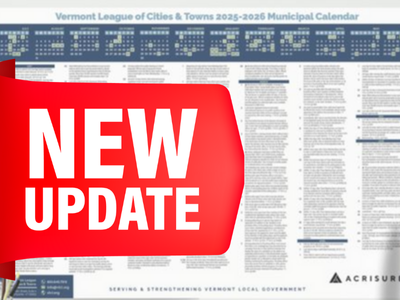2025 VLCT Compensation and Benefits Survey Results Dashboard
Report Highlights
This is the first part of a three-part series summarizing selected results from the 2025 Compensation and Benefits Survey.
Click on each tab in the interactive dashboard below to find representations of the data that shed light on key metrics, especially those related to municipalities’ 2025 annual meetings. Under each tab, charts provide an overall picture of the information listed. For more detail, hover over the charts to see data descriptions or use the diagonal arrow icon in the upper righthand corner to maximize and minimize a particular chart. In these views you can also sort, share information, filter relevant datapoints, and reformat charts.
The survey conducted in the summer of 2025 garnered more responses than in any previous year, with 198 participants submitting data via the online questionnaire, payroll reports, and/or budget reports. The full report was released in October to be available for municipalities planning the next year’s budgets. The data used in this dashboard has been aggregated and summarized. We were unable to include some payroll and budget report submissions due to formatting errors.
How to Access the Full Dataset
If you are a municipal officer or staff member of a municipality that responded to the 2025 survey (shown in the respondent list posted in the Compensation and Benefits Report page of the VLCT Store), you may request free access to the digital report by emailing info@vlct.org. VLCT members that did not respond to this year’s survey can purchase the report there at a discount. Non-members may purchase it there at full price.
If your municipality was unable to participate in 2025, please plan to respond to the next survey, which is expected to open in early May 2026.

